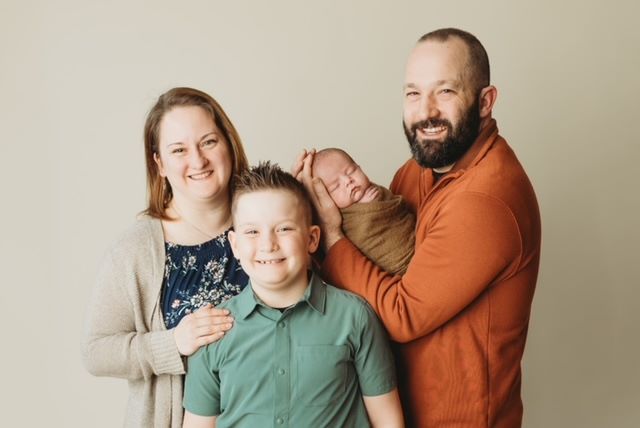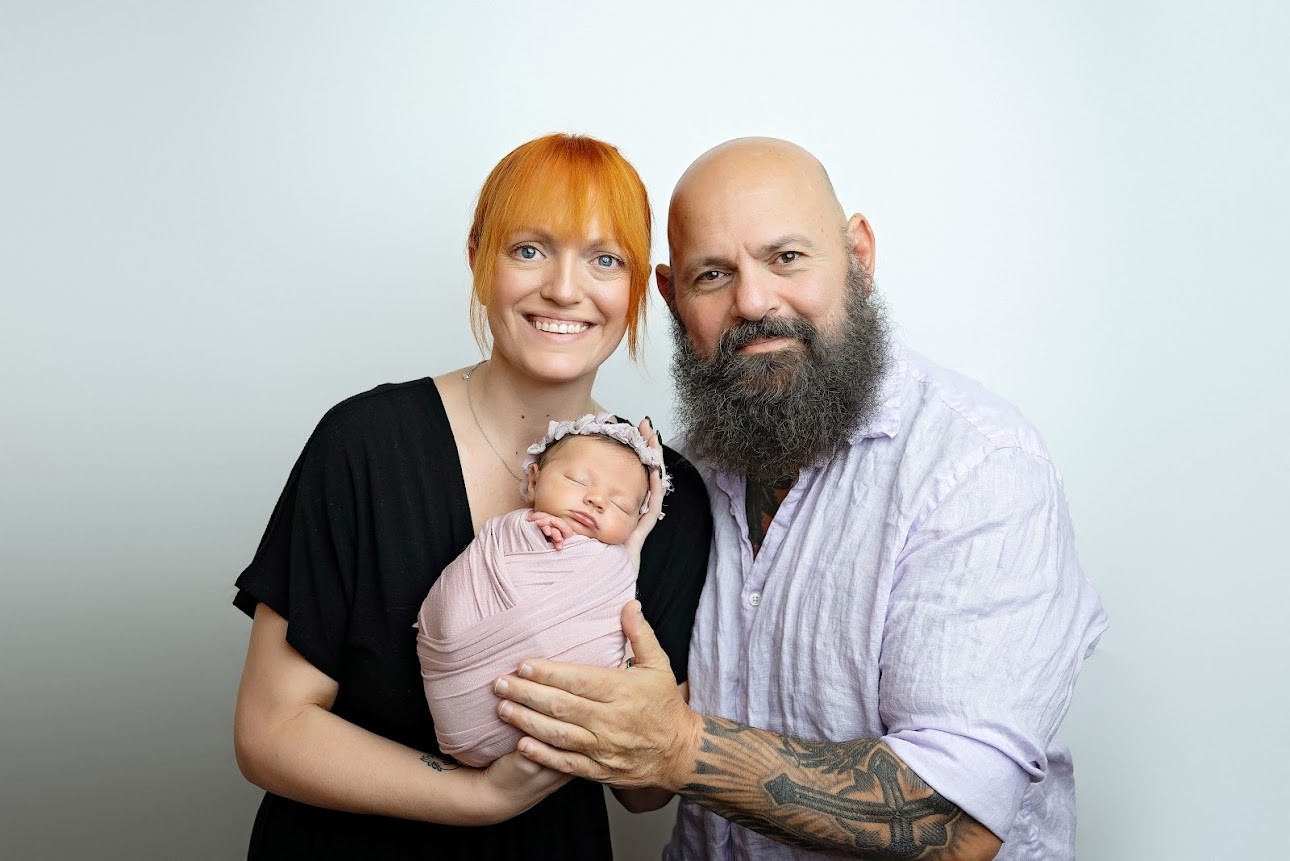Many surrogacy agencies require medical documentation confirming that attempts at pregnancy have not been successful, or pregnancy would be medically dangerous.
However, questions about "social surrogacy" are increasing as more people explore alternative paths to parenthood, and American Surrogacy has developed a flexible approach based on individual circumstances and state law.
Whether you're exploring surrogacy due to documented medical necessity or other reasons, we provide comprehensive guidance on requirements, ethical considerations, and alternatives.
Can I Pursue Surrogacy Without Medical Reasons?
Yes. While many reputable agencies require a letter of medical recommendation, American Surrogacy works with families who do not have medical documentation in certain circumstances.
The practice of social surrogacy is not legal in all states, and some clinics and agencies choose not to work with intended parents pursuing this path.
However, we strive to offer options to some families, depending on their specific circumstances and local laws.
Ready to explore your options? Our specialists can help you determine the best path forward for your family.
Understanding Social Surrogacy
Social surrogacy means pursuing gestational arrangements when intended parents can conceive and carry pregnancies but choose alternatives for non-medical reasons.
This differs from medical surrogacy, where documented health risks or physical impossibility of pregnancy necessitate gestational services.
We understand that your motivations are deeply personal, and we are committed to helping you find an ethical and legal path that honors your unique family-building decision.
Common Motivations for Social Surrogacy
Individuals considering social surrogacy often have deeply personal motivations that extend far beyond simple convenience. Research and agency experience reveal several recurring themes that drive these complex decisions:
- Career considerations - High-demand careers may have timing constraints making pregnancy challenging, potentially interfering with advancement opportunities or physical job demands.
- Previous traumatic experiences - Women who experienced severe complications, traumatic deliveries, or pregnancy loss may develop anxiety about subsequent pregnancies.
- Advanced maternal age concerns - Some older intended parents prefer gestational services to minimize perceived age-related pregnancy risks.
- Severe tokophobia - This anxiety disorder affects approximately 14% of women and can create genuine psychological distress around pregnancy and delivery.
- Demanding lifestyle requirements - Frequent travel, physically demanding lifestyles, or commitments that conflict with pregnancy requirements.
These motivations often interweave, creating complex scenarios that require careful consideration and professional guidance. What may appear as lifestyle preference frequently involves deeper concerns about health, career timing, or psychological well-being that deserve thoughtful evaluation.
LGBTQ+ Couples and Single Parents: A Different Category
LGBTQ+ couples and single parents represent a fundamentally different category from social surrogacy due to biological limitations rather than elective choices. We support gay male couples, single men, and single women or lesbian couples with medical contraindications like cardiac disease, uterine abnormalities, or cancer treatment effects.
Most agencies don't consider LGBTQ+ status as social surrogacy because these family structures face legitimate biological or medical necessity for reproductive assistance—the fundamental distinction lies in necessity versus choice.
What if your family-building journey could start with one conversation? Many families discovered possibilities they hadn't considered simply by speaking with our team.
Explore Your Family-Building Options
Why Some Agencies Require Medical Documentation
Many agencies maintain medical necessity policies for evidence-based reasons rooted in ethics, legal protection, and industry standards.
While American Surrogacy upholds these standards, we recognize that a small but growing number of families may seek surrogacy for deeply personal, non-medical reasons.
We are prepared to work with some families pursuing non-medical surrogacy, depending on:
- Legality in the specific state where the arrangement will take place.
- The specific circumstances of the intended parents.
For agencies that maintain the strict medical requirement, it is to provide clear ethical justification—when pregnancy poses health risks, reproductive assistance becomes medical intervention rather than lifestyle service, maintaining legitimacy and protecting against exploitation concerns.
Medical Conditions That Qualify for Surrogacy
Healthcare providers recognize comprehensive medical diagnoses that make pregnancy unsafe or impossible, falling into primary categories that require careful evaluation and documentation by licensed medical professionals.
Reproductive and Structural Conditions
The most common qualifying conditions involve physical abnormalities or damage to reproductive organs that make pregnancy impossible or dangerous:
- Congenital uterine absence - Mayer-Rokitansky-Küster-Hauser syndrome affects approximately 1 in 4,000 women, requiring alternative reproductive methods.
- Severe uterine scarring - Previous surgeries, severe Asherman's syndrome, or abnormalities preventing embryo implantation.
- Recurrent pregnancy loss - Multiple miscarriages or stillbirths, particularly with underlying conditions like antiphospholipid syndrome.
Chronic Health and Mental Health Conditions
Many chronic diseases make pregnancy dangerous for both mother and baby, including cardiovascular conditions, kidney disease, severe diabetes, and autoimmune disorders that often worsen during pregnancy, while cancer treatment effects may affect reproductive organs or require ongoing monitoring.
Health considerations include severe psychiatric conditions like bipolar disorder, schizophrenia, or severe depression where pregnancy could trigger dangerous episodes. Tokophobia affects approximately 14% of women and may qualify when creating significant psychological barriers.
Licensed providers must evaluate each case individually, providing documentation with diagnosis codes, treatment history, and pregnancy safety recommendations.
You've navigated so much on your journey to parenthood. The next step could be simpler than you think.
Get Your Questions Answered Today
Ethical Perspectives on Non-Medical Surrogacy
Social surrogacy involves complex bioethical considerations that medical ethicists, legal scholars, and reproductive medicine professionals continue debating. Understanding these multifaceted perspectives helps prospective parents make informed decisions that align with their personal values and circumstances.
Arguments Supporting Social Surrogacy
Proponents base their arguments on fundamental principles of personal choice and reproductive autonomy:
- Reproductive autonomy - Individuals should maintain decision-making authority over pregnancy without external coercion.
- Quality-of-life considerations - Medical interventions already incorporate personal well-being factors beyond strict necessity.
- Inherent pregnancy risks - Even healthy pregnancies carry risks, making medical vs. non-medical distinctions less clear-cut.
- Personal circumstances matter - Career timing, family planning, and life circumstances should be respected in reproductive decisions.
Medical ethicists who support expanded access argue that restrictive policies may inadvertently discriminate against women who have legitimate personal reasons for choosing gestational services, particularly when those reasons involve quality-of-life factors that are considered valid in other medical contexts.
Ethical Concerns and Criticisms
Critics raise significant concerns about equity and societal implications, particularly worrying that lifestyle arrangements could create systems where wealthier individuals avoid pregnancy's costs while economically disadvantaged women bear these burdens, along with potential societal pressure on women to avoid pregnancy for career advancement in competitive environments.
Research on gestational carrier perspectives reveals that many express stronger comfort helping intended parents overcome medical obstacles compared to elective arrangements, though perspectives vary based on individual values and experiences—what matters most is ensuring carriers feel genuinely comfortable with their participation decisions.
International and Regulatory Variations
Regulatory approaches vary dramatically internationally, with countries like the UK, Canada, and Australia generally prohibiting commercial arrangements while permitting altruistic services with medical requirements.
Several U.S. states permit both medical and social arrangements with varying frameworks, while international destinations including Ukraine, Georgia, and Mexico offer more permissive approaches with different legal protections. Bioethical considerations continue evolving as reproductive technology advances and societal perspectives on family-building change.
Wondering how these considerations apply to your situation? Our team can help navigate practical and ethical aspects of your family-building choices.
Speak with a Family-Building Specialist
American Surrogacy's Comprehensive Support System
We've established our reputation through evidence-based practices supporting families navigating complex journeys to parenthood. Our comprehensive approach prioritizes safety, ethical standards, and successful outcomes for all parties involved in gestational arrangements, with success rates consistently above industry averages.
Our integrated support system addresses every aspect of the gestational surrogacy journey through specialized expertise and personalized care:
- Comprehensive medical evaluation - Reproductive endocrinologists and maternal-fetal specialists confirm gestational services represent the safest path for each situation.
- Pre-screened carrier network - Thorough 12-point vetting including medical, psychological, and background assessments ensures successful outcomes.
- Expert legal protection - Reproductive law attorneys across multiple jurisdictions protect parental rights and ensure compliance.
- Complete financial transparency - Detailed breakdowns with escrow management, insurance coordination, and no hidden fees.
- Efficient matching - Qualified intended parents connect with compatible carriers within 1 - 4 months through comprehensive assessments.
- 24/7 ongoing support - Licensed social workers provide guidance from consultation through delivery and beyond.
This comprehensive framework serves families facing medical obstacles to safe pregnancy, LGBTQ+ families requiring reproductive assistance, and single parents with medical conditions preventing natural pregnancy. We provide the expert guidance necessary to achieve family-building goals safely, ethically, and with optimal outcomes for everyone involved.
Your family-building journey has been filled with questions, and you deserve clear answers.
Next steps to get the clarity you need:
- Gather your medical documentation and prepare specific questions about your situation
- Request a confidential consultation to discuss your unique circumstances
- Learn about all available options, including potential alternatives if surrogacy isn't the right fit
- Speak to Our Experts - No matter where you are in your journey, our team can provide personalized guidance and help you understand your path forward.
Whether you're dealing with complex medical conditions or exploring options as a single parent or LGBTQ+ couple, American Surrogacy provides comprehensive resources to help you understand possibilities and take confident steps toward welcoming your child.
Imagine having experts who understand your unique situation and are committed to helping you find the right path forward—that support is available today.
You don’t have to wait any longer - Begin Your Journey Today

2 Months

1 Month

3 Weeks